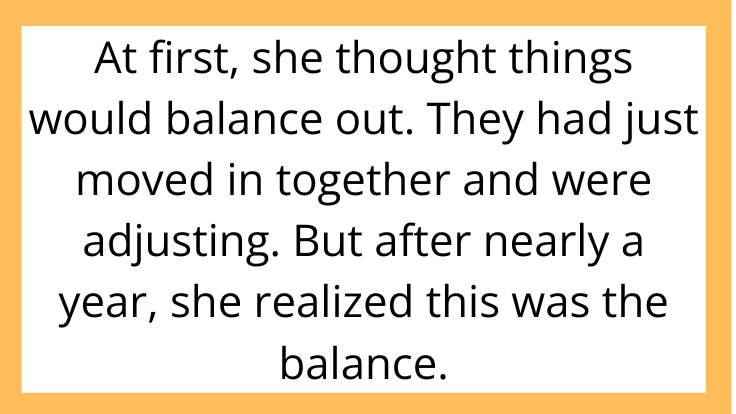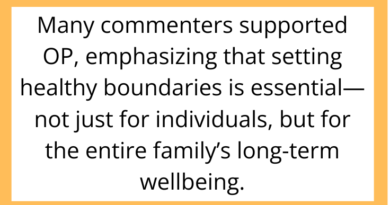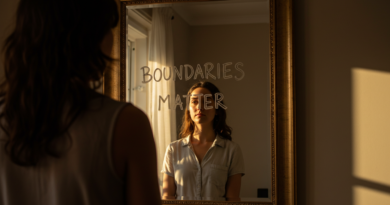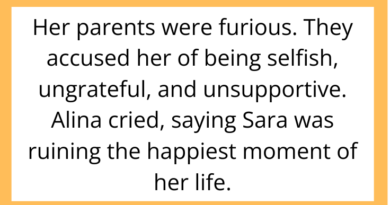AITAH for Telling My Husband I’m Not His Maid and Refusing to Clean Up After Him?
Marriage is about partnership—but what happens when one partner feels more like a personal assistant than an equal? In today’s AITAH blogpost, we explore the emotional labor many women take on behind closed doors, and ask: when you draw the line, are you the problem?
Let’s unpack the story that’s dividing the internet.
The Story: A One-Way Street at Home
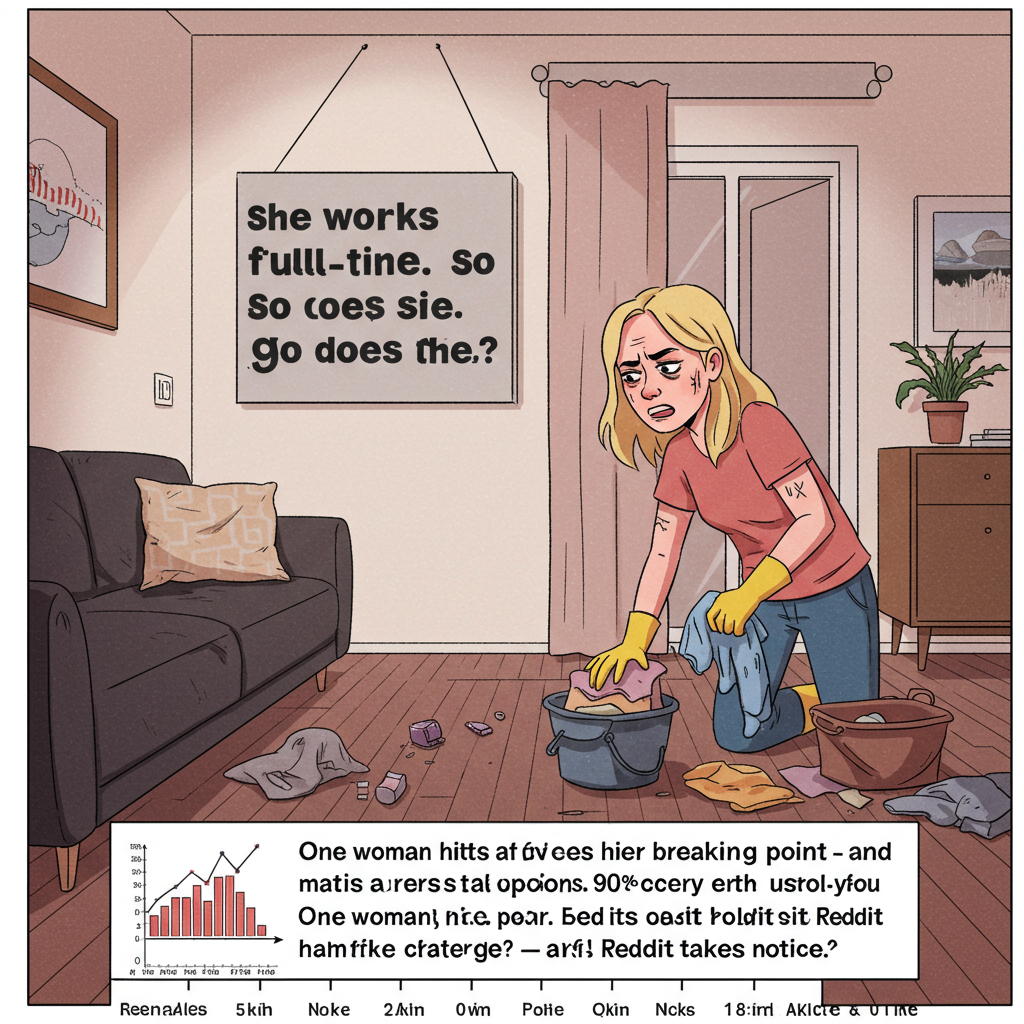
A 27-year-old woman—let’s call her Sara—shared her frustration on r/AITAH after reaching her breaking point. She works full-time, just like her husband, but unlike him, she also handles 90% of the household chores: dishes, laundry, vacuuming, tidying up after dinner—and even managing appointments and grocery lists.
At first, she thought things would balance out. They had just moved in together and were adjusting. But after nearly a year, she realized this was the balance.
Last week, after coming home from a 10-hour shift, she walked into a mess. Dirty dishes in the sink, crumbs all over the kitchen, and her husband playing video games. When she asked if he’d planned to clean anything, he said, “I was waiting for you. You’re better at it.”
That was the final straw.
She snapped: “I’m not your maid. You’re a grown man. Start acting like it.” Then she refused to clean anything for the next few days. Her husband accused her of overreacting and being “disrespectful.”
So, Sara turned to Reddit: AITAH for refusing to clean up after my husband and telling him I’m not his maid?
The Emotional Load: What Sara’s Really Talking About
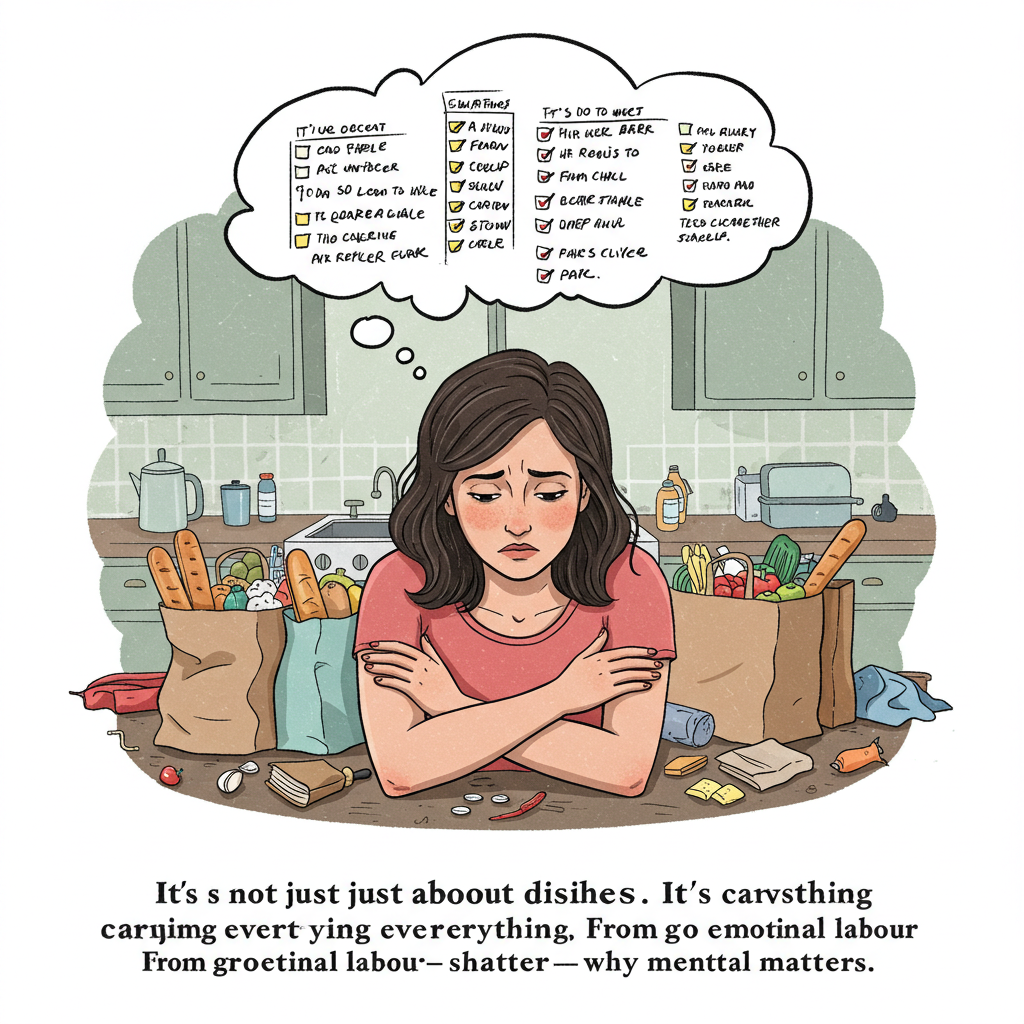
More Than Chores: The Mental Labor Divide
Many women like Sara find themselves not just doing chores, but carrying the mental load—remembering when bills are due, managing social calendars, replacing the toilet paper before it runs out.
This unseen work often goes unnoticed until it stops. Sara wasn’t just upset about dishes; she was tired of being the one who notices, plans, reminds, and executes.
The phrase “I’m not your maid” is about more than cleanliness—it’s about equality, appreciation, and shared effort.
Reddit Reacts: Sympathetic but Suggesting Solutions
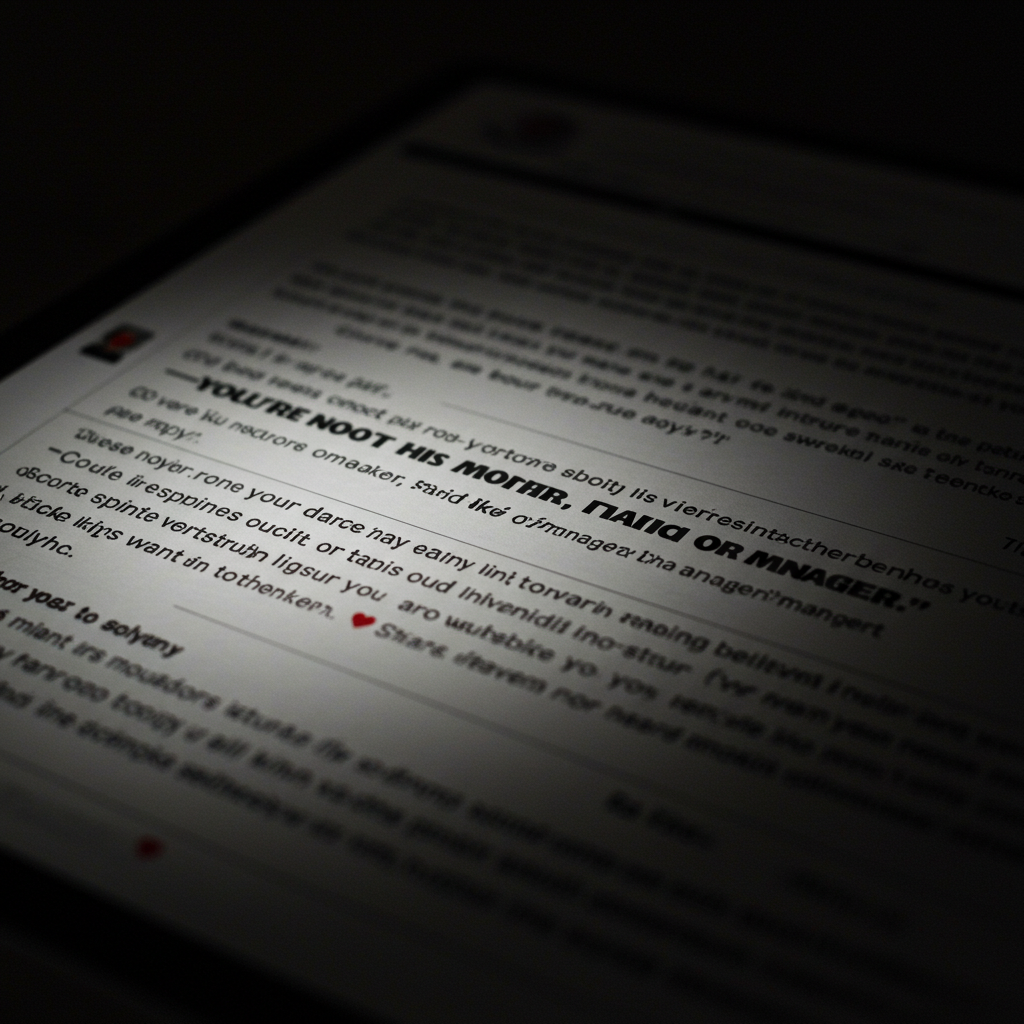
The top comments flooded in with support:
“NTA. You’re not his mother, maid, or life manager. He’s being lazy and inconsiderate.”
“Weaponized incompetence at its finest. He can help, he just doesn’t want to.”
However, some pointed out that communication is key:
“Don’t just go cold-turkey with chores. Sit him down and have a clear, calm talk about shared responsibilities.”
Others suggested creating a chore chart, going to couples counseling, or temporarily separating finances and responsibilities to help him realize the burden she’s carrying.
Why This Story Hits Home
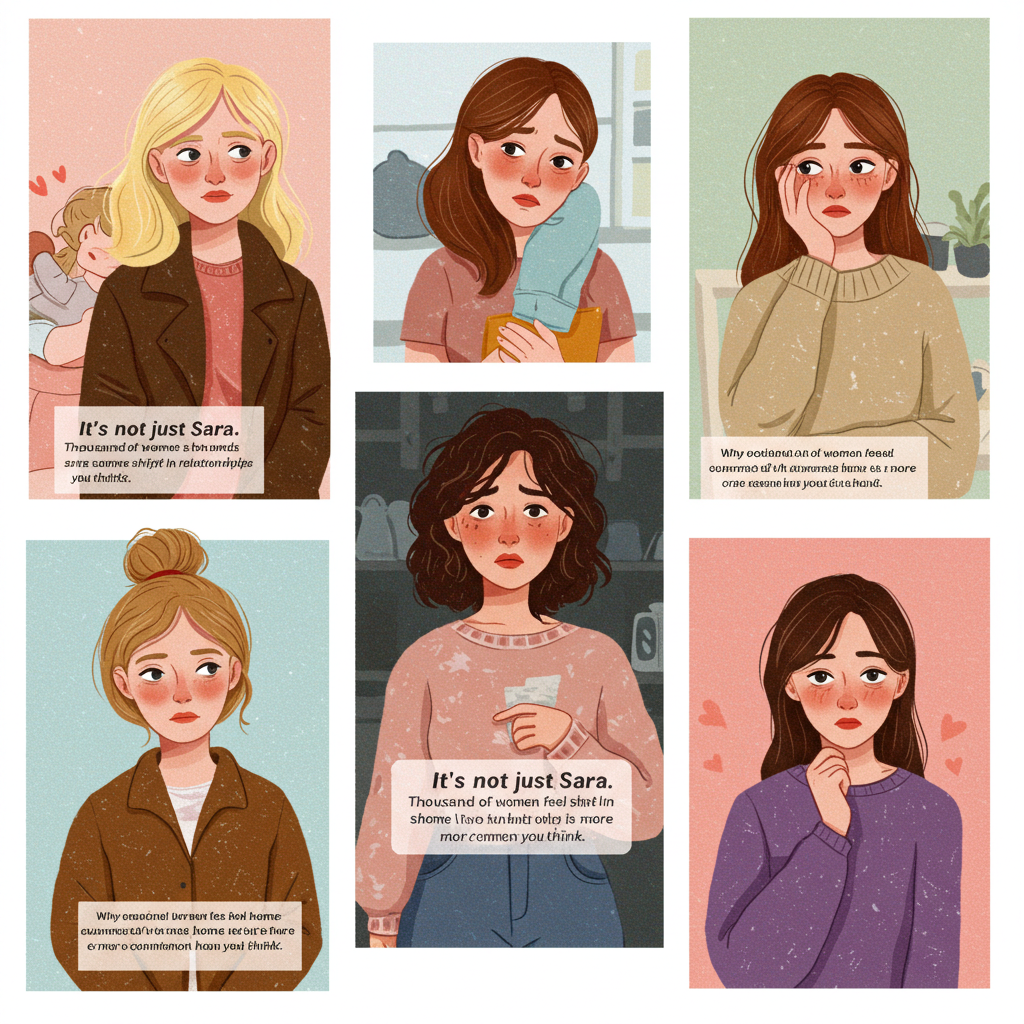
Sara’s story resonated because many couples experience this shift after marriage or cohabitation. A pattern develops where one partner—often unintentionally—falls into a passive role while the other becomes overwhelmed.
Over time, this imbalance leads to resentment, emotional burnout, and breakdowns in communication. The problem isn’t always the amount of work—it’s the unequal distribution.
Navigating the Conversation: How to Reset the Household Balance
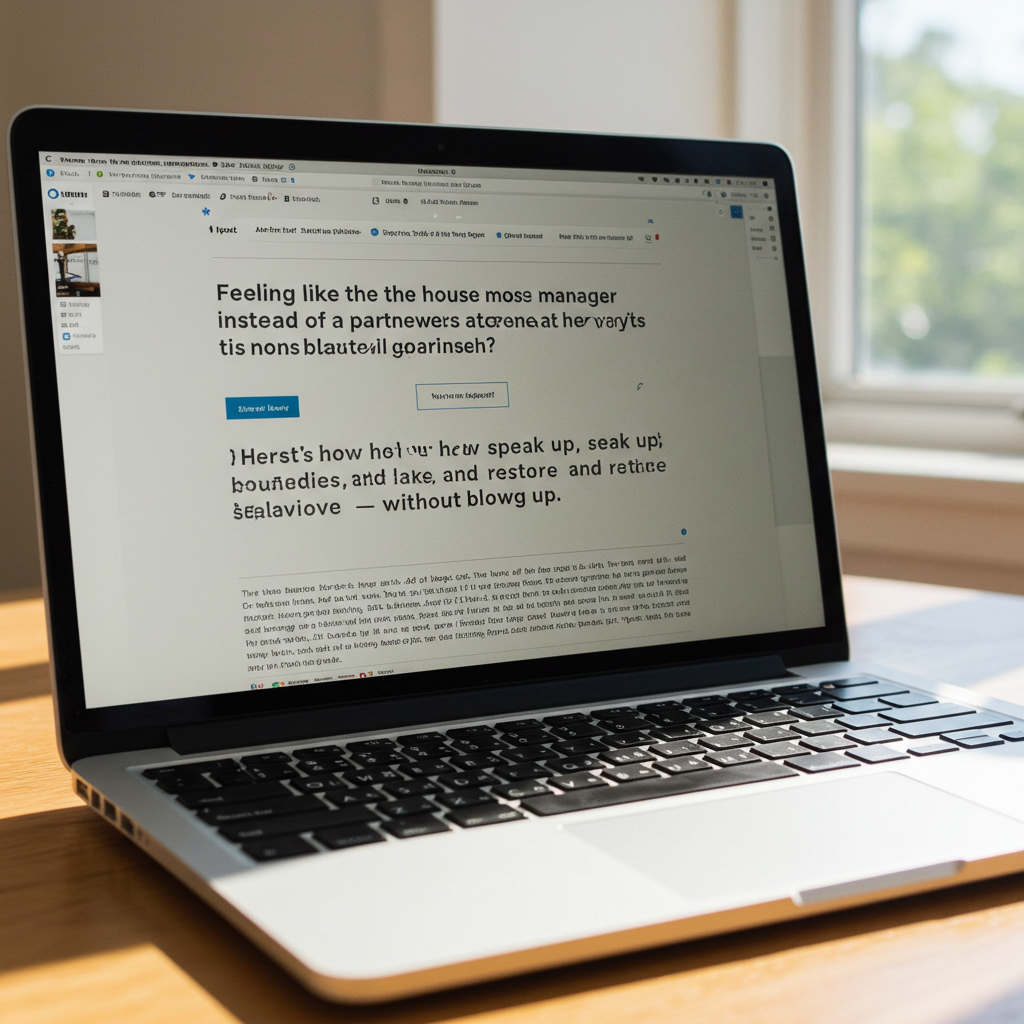
If you’re in a similar situation, here are some steps to restore balance without escalating conflict:
1. Start with Honesty, Not Anger
Instead of a blow-up, calmly express how the current dynamic makes you feel. Use “I” statements: “I feel exhausted managing everything on my own.”
2. Clarify Expectations
Sometimes, one partner genuinely doesn’t see the mess or realize what needs doing. A shared task list or weekly meeting can help make the invisible visible.
3. Avoid Keeping Score—Track Responsibility Instead
It’s not about who did what last. It’s about creating a sustainable system where no one feels taken for granted.
4. Stay Firm on Boundaries
If your partner refuses to engage or improve, it’s okay to set boundaries. Refusing to enable the behavior isn’t spiteful—it’s necessary.
The Bottom Line: Standing Up for Yourself Doesn’t Make You a Villain

Sara’s situation is a common one, and she’s not alone in feeling overwhelmed and undervalued. Saying “I’m not your maid” may sound harsh, but sometimes it takes a hard truth to spark change.
You can love your partner and still expect them to carry their weight. You can want peace without having to sacrifice your mental health to get it.
